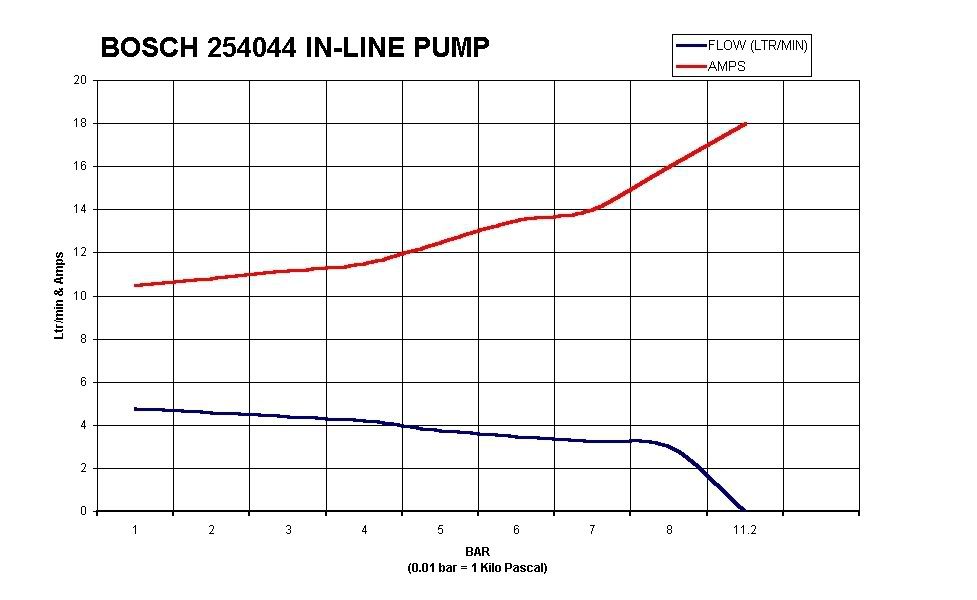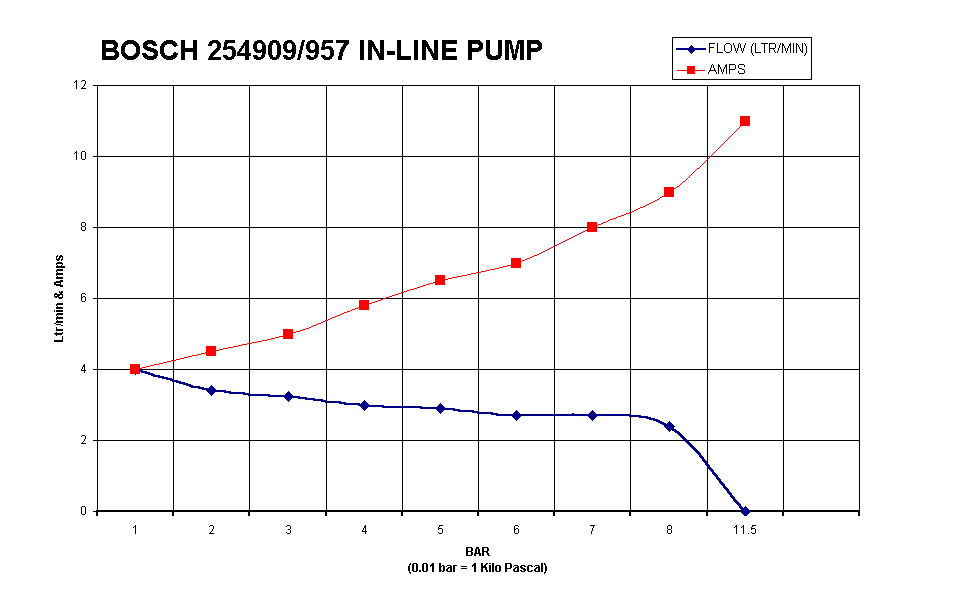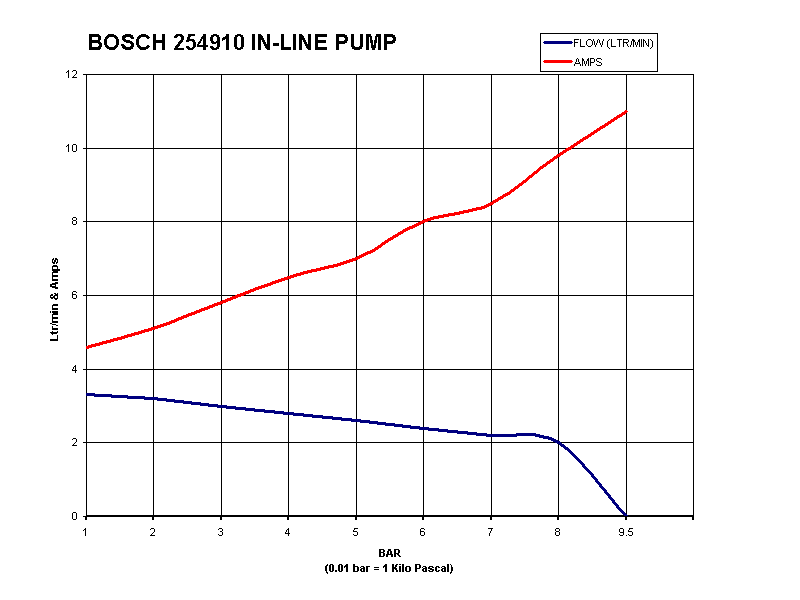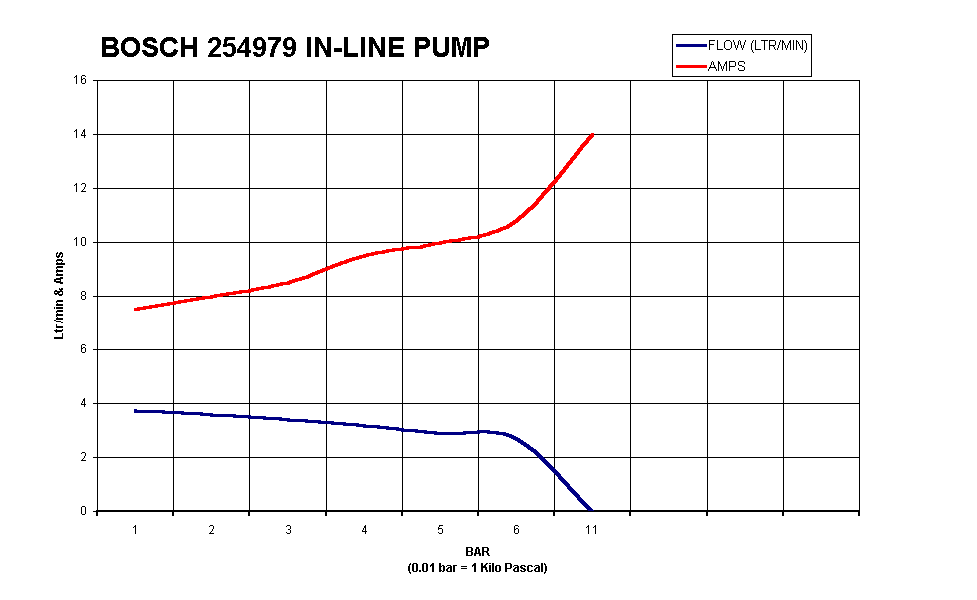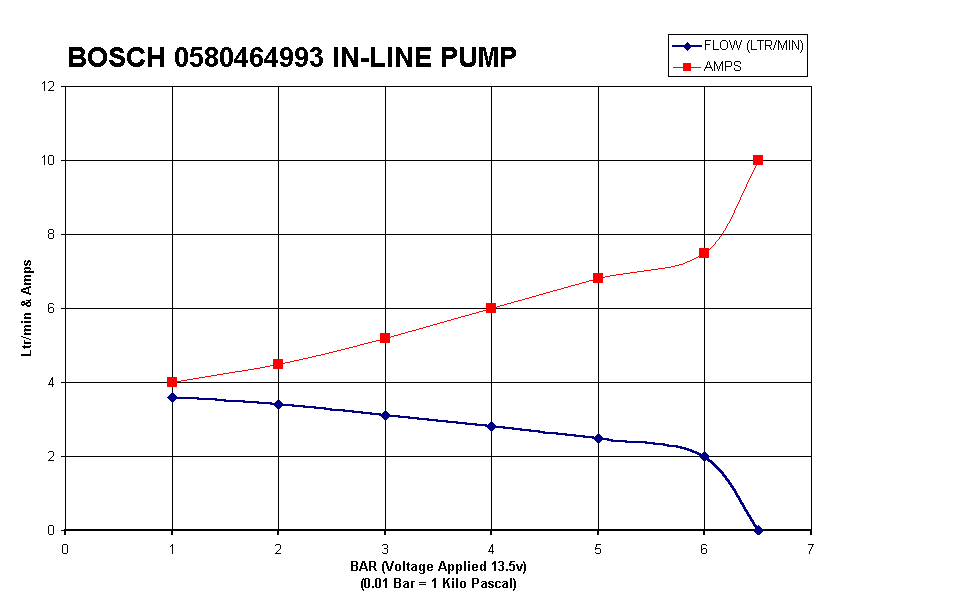Bosch EFI fuel pumps info
Posted: Mon Oct 26, 2009 2:20 pm
I found this info useful when sorting out an EFI conversion - upgrading a Range Rover V8 by replacing the holley carby with EFI gear from a 1990s Discovery.
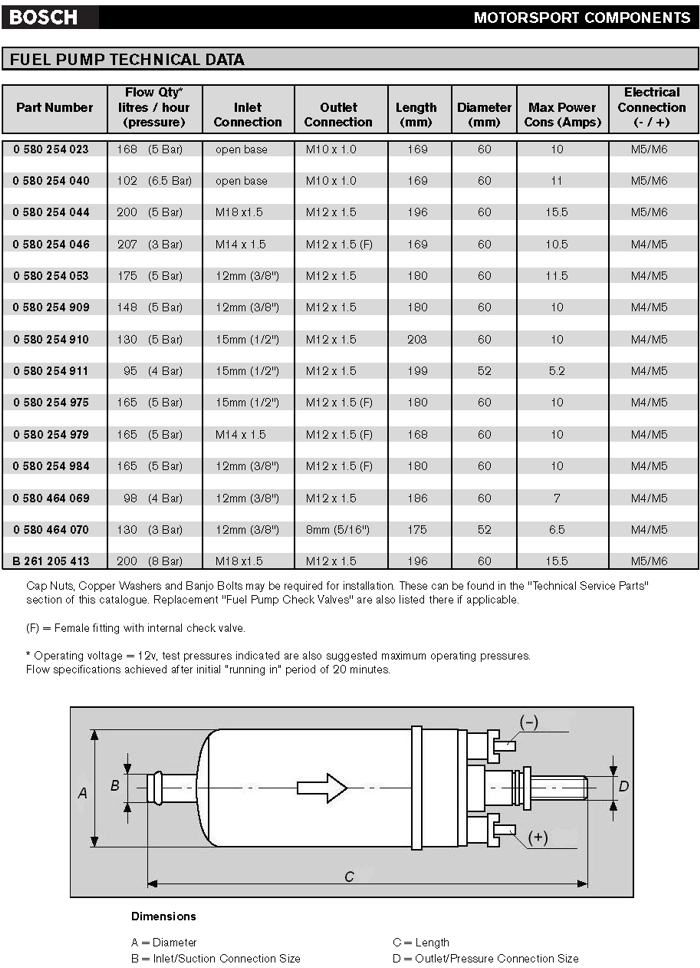
The original document is a .pdf and I can email it to anyone who wants it.
It also says:
Bosch don't specify horsepower for their pumps but from what I have seen the general view is that a 910 is good for 450bhp and an 044 is good for around 800bhp. I do not know whether these figures are reliable.
I obtained a 909 for next to nothing from a BMW at a pick-a-part. It should really be up for anything in a typical 4WD and is a lot cheaper than $200 for an 044. I adapted the mercedes bracket as well to make a pump/filter combo that is connected with banjo fittings, so it is pretty compact and fits where the old carby pump used to be. By using a filter that has M12x1.25 threaded fittings, I was also able to add a generic fuel pressure gauge (ebay for ricers, honda civics etc use this type of filter connection).
Anyway, I just thought this might be a useful reference for someone!

The original document is a .pdf and I can email it to anyone who wants it.
It also says:
The Bosch pumps are usually referred to by the last three digits, hence you will find the "044" pump on ebay a lot. You will also find the "023" which is the nearest open-bottom equivalent (for in-tank use). I saw one seller advertising the 023 as the 044's "big brother" but it's obvious fro9m the specs that this isn't correct at all.Purpose and Function
Modern EFI fuel systems circulate as much as 200 litres per hour
(~ 3 litres / min ) of fuel at pressures between 2.5 - 3.5 bar ( 250 - 350 kpa )
Modern electric fuel pumps are “Positive Displacement” type pumps, this means that the pump cannot produce pressure unless it is acting upon a restriction. The only restriction in the system should be the fuel pressure regulator. The regulator controls the system pressure; the pressure ability or flow volume capacity of the fuel pump will not alter the system pressure. Due to the high pressure and volume requirements placed upon these pumps, manufacturing tolerances are extremely fine. Motor speeds can be as high as 10,000 RPM and the clearances within the pumping elements down to microns. Cleanliness of the fuel system is vital, with an efficient high quality filter as an essential part of the fuel system.
FUEL PUMPS
Important Note.
• Bosch Fuel Pumps have their flow rates defined in N-Heptane as part of their engineering specification. N-Heptane is a pure chemical and does not have the same viscosity and density as standard petrol. Hence the N-Heptane flow rate figures stated should be used as a general guide for comparison purposes only.
• Bosch Fuel Pumps are designed for use with standard grade petrol. Subject to statutory warranties, Bosch does not warrant the performance characteristics or specifications of these fuel pumps if they are used with Alcohol or Ethanol based fuels or fuel additives that are corrosive.
Bosch don't specify horsepower for their pumps but from what I have seen the general view is that a 910 is good for 450bhp and an 044 is good for around 800bhp. I do not know whether these figures are reliable.
I obtained a 909 for next to nothing from a BMW at a pick-a-part. It should really be up for anything in a typical 4WD and is a lot cheaper than $200 for an 044. I adapted the mercedes bracket as well to make a pump/filter combo that is connected with banjo fittings, so it is pretty compact and fits where the old carby pump used to be. By using a filter that has M12x1.25 threaded fittings, I was also able to add a generic fuel pressure gauge (ebay for ricers, honda civics etc use this type of filter connection).
Anyway, I just thought this might be a useful reference for someone!
